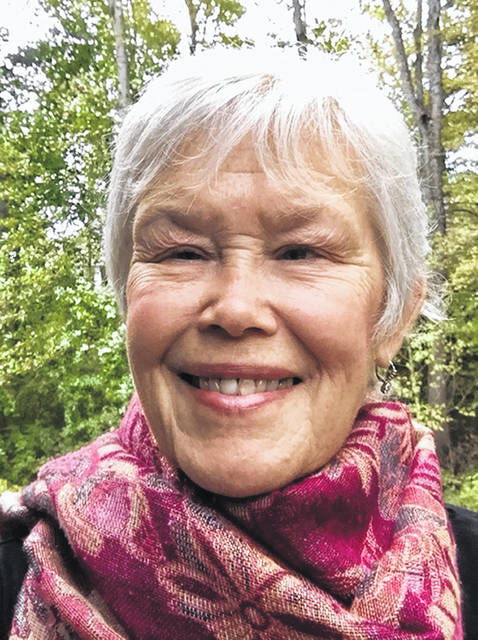
“Halloween” was the big box office draw last weekend at our local cinema, so our small step into the lobby created a giant leap in the average age in the ticket line.
“Get Out” is my threshold for scary movies, and the gruesome murder of Washington Post columnist Jamal Khashoggi was already more horror than I could bear.
We had come for “First Man,” the story of Neil Armstrong, starring Ryan Gosling and Claire Foy.
Intimate and epic, heart rending and heart stopping, for a blessed 141 minutes the film took us to a more visionary, more hopeful, more ably led America.
The respect and affection and goodwill felt for our country by a global community watching Neil Armstrong take his first step on the lunar surface was expressed by a French woman, in actual news footage from the time, who said, “I always trusted America. I knew they couldn’t fail.”
Not that things were all daisies and unicorns between the U.S. and the rest of the world in the 1960s.
During college, I spent a summer in Europe and found America’s escalating involvement in Vietnam made interactions with locals far less pleasant than they are today, when waiters and shopkeepers and hoteliers are quick to offer Americans concern and sympathy.
Neither were things going so smoothly at home when the three-man Apollo 11 crew held the world in thrall. (Edwin “Buzz” Aldrin, played in “First Man” by Corey Stoll, followed Armstrong down the Lunar Module ladder, joining other historical footnoters, like Sham, who placed behind Secretariat at the 1973 Kentucky Derby. Astronaut Michael Collins remained in lunar orbit during the LM landing and exploration.)
The July 1969 moon landing was preceded by years of social upheaval and domestic terror, including the assassinations of Jack and Bobby Kennedy and Martin Luther King, Jr., and the 1964 Freedom Summer murders of James Chaney, Andrew Goodman, and Michael Schwerner, in Neshoba County, Mississippi.
And more years of anti-war demonstrations and civil rights, women’s rights, and gay rights struggles were to come.
Yet, amid the tumult over what kind of country we wanted to be, the Apollo 11 mission bound us, reminded us that we are all one people, that we can make big dreams come true, that scientific knowledge and the human imagination can take us to new worlds, both literally and figuratively.
The morning after the moon landing, I was at my still new job, at the West Point, Mississippi, Daily Times Leader.
I don’t remember my assignments that day, but during my tenure there as city editor, I would cover a successful economic boycott of discriminatory businesses; the unsuccessful defiance of a federal court order to desegregate the local schools; the bombing of the county courthouse by whites who tried and failed to frame black activists for the crime; and the murder, in broad daylight, in the presence of witnesses, of the campaign manager of the first black candidate for mayor since Reconstruction.
The shooter was acquitted by what would be the last all-white jury in Clay County, Mississippi.
Threats against journalists were routine, and I was advised by the state police not to drive out of town at night alone. When the files of the Mississippi Sovereignty Commission, a secret domestic surveillance organization established by the state legislature, were made public years later, I discovered a file on me, prepared by a moonlighting state patrolman.
He didn’t get my name right — he wrote me up as Mary Jo — and cited not my reporting, but my work on the board of the state’s first licensed day care center for black children as seditious activity. His informant was the local Rexall pharmacist.
I’m fortunate to have lived long enough to see lots of bad government replaced by better government, owing to the perseverance of good people demanding and exercising their rights of citizenship.
“First Man” brought all that back and left me hopeful that on the horizon is some grand, common purpose that will launch our imaginations and unite the planet, and that this November we might cast our ballots to that end.
Mary Thomas Watts lives, writes, and votes in Wilmington.


